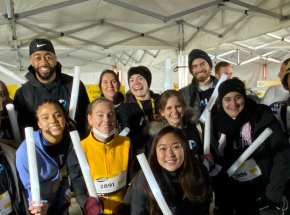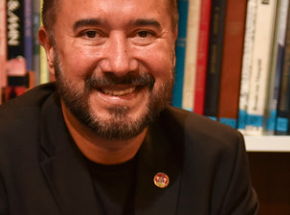- About AUP
- History of AUP
- Mission & Core Values
- Vision and Leadership
- AUP Recognition
- Alumni Success
- Campus Development
- Arts at AUP
- Policies & Guidelines
- Academics
- Undergraduate
- Graduate Programs
- MA in Diplomacy and International Law
- MA in Global Communications
- MSc in Human Rights and Data Science
- MA in International Affairs
- MA in International Affairs, Conflict Resolution, and Civil Society Development
- MSc in International Management
- MSc in Strategic Brand Management
- Find Your Thesis Advisor
- Previous Programs
- Cultural Program
- Faculty
- Summer School
- Research Centers
- The Center for Critical Democracy Studies
- Upcoming Events
- Research Projects
- Fellows’ Publications
- Publishing
- Curriculum
- Community
- Partnerships
- Visiting Scholars
- CCDS Highlights
- Atelier de Théorie Politique – Paris
- Critical Theory 101: Future Directions and New Challenges
- Martti Koskenniemi on “The Law of International Society: A Road not Taken”
- Academic Freedom Symposium
- Tocqueville Colloque 2023
- Violent Turns Conference
- Degenerations of Democracy
- DEMOS21 Inaugural Event
- What Demos for the 21st Century?
- The Paris Centennial Conference
- Justice Stephen Breyer
- Civic Jazz - The Launch of the Center
- Past Events
- FR
- The Center for Writers and Translators
- The George and Irina Schaeffer Center for the Study of Genocide, Human Rights and Conflict Prevention
- The Joy and Edward Frieman Environmental Science Center
- The Center for Media, Communication & Global Change
- The Center for Critical Democracy Studies
- Departments
- Academic Resources
- Academic Affairs
- Academic Calendar
- Academic Resource Center
- Library
- Registrar's Office
- Teaching and Learning Center
- Accessibility & Accommodation Services
- AI@AUP: A Campus-Level Initiative
- Quai D'Orsay Learning Commons
- Paris as Classroom
- ACE
- Admissions
- Student Life
- Campus
- Student Leadership & Involvement
- Paris
- Support Services
- Student Life Help Desk
- Student Accounting Services
- Student Immigration Services
- Student Grievance Procedure
- Diversity and Inclusion
- Health & Well-being
- Digital Student Handbook
- News
- Events
- AUP Giving
- Housing Offer for 2025-2026
- IT Services
- Alumni
- About AUP
- History of AUP
- Mission & Core Values
- Vision and Leadership
- AUP Recognition
- Alumni Success
- Campus Development
- Arts at AUP
- Policies & Guidelines
- Academics
- Undergraduate
- Graduate Programs
- MA in Diplomacy and International Law
- MA in Global Communications
- MSc in Human Rights and Data Science
- MA in International Affairs
- MA in International Affairs, Conflict Resolution, and Civil Society Development
- MSc in International Management
- MSc in Strategic Brand Management
- Find Your Thesis Advisor
- Previous Programs
- Cultural Program
- Faculty
- Summer School
- Research Centers
- The Center for Critical Democracy Studies
- Upcoming Events
- Research Projects
- Fellows’ Publications
- Publishing
- Curriculum
- Community
- Partnerships
- Visiting Scholars
- CCDS Highlights
- Atelier de Théorie Politique – Paris
- Critical Theory 101: Future Directions and New Challenges
- Martti Koskenniemi on “The Law of International Society: A Road not Taken”
- Academic Freedom Symposium
- Tocqueville Colloque 2023
- Violent Turns Conference
- Degenerations of Democracy
- DEMOS21 Inaugural Event
- What Demos for the 21st Century?
- The Paris Centennial Conference
- Justice Stephen Breyer
- Civic Jazz - The Launch of the Center
- Past Events
- FR
- The Center for Writers and Translators
- The George and Irina Schaeffer Center for the Study of Genocide, Human Rights and Conflict Prevention
- The Joy and Edward Frieman Environmental Science Center
- The Center for Media, Communication & Global Change
- The Center for Critical Democracy Studies
- Departments
- Academic Resources
- Academic Affairs
- Academic Calendar
- Academic Resource Center
- Library
- Registrar's Office
- Teaching and Learning Center
- Accessibility & Accommodation Services
- AI@AUP: A Campus-Level Initiative
- Quai D'Orsay Learning Commons
- Paris as Classroom
- ACE
- Admissions
- Student Life
- Campus
- Student Leadership & Involvement
- Paris
- Support Services
- Student Life Help Desk
- Student Accounting Services
- Student Immigration Services
- Student Grievance Procedure
- Diversity and Inclusion
- Health & Well-being
- Digital Student Handbook
- News
- Events
- AUP Giving
- Housing Offer for 2025-2026
- IT Services
- Alumni
Alumna
Clémence Wurtz ’13
Major in International Business Administration
Clémence in New York
How did you know AUP was the place for you?
I spent a year in a French business school, but I soon realized the French education system wasn’t for me. When I found out about AUP, it seemed like a foregone conclusion. AUP had everything I needed: an American education system in Paris, a city in my home country, where all my friends were! I really enjoyed classes. AUP was a place where we were constantly growing, challenging our views and constructing new ways of thinking. Students from all over the world brought their own unique perspectives and discussed and challenged them together. My relationships with professors were also great; we were more like partners than anything.
What have you been up to since leaving AUP?
After graduating, I spent three years working in marketing for Uber in France, but for the last four years I have been running my French clothing company dedicated to ready-to-wear bodysuits, Flair Bodysuits. I never planned to start my own business, but AUP really gave me entrepreneurial spirit as well as this open-minded way of seeing my career. Things are going great. I just got back from New York, where we inaugurated our pop-up store at the Saks Fifth Avenue department store. We’ve signed a contract with an agent who will now represent our brand in New York and Los Angeles. My advice to anyone just graduating is to find something you love, and then to work hard at it. Nothing happens overnight, you need to fight for it and be resilient. If the thing you love is not what you studied for, it doesn’t matter – so long as you are passionate and determined.
In your opinion, what are today’s most important global challenges?
Climate change and social inequality are two enormous, overlapping challenges that we have to fight for every day. (At Flair Bodysuits, we produce everything in France, and we mainly use eco-certified fabrics.) I believe education is vital to this fight. Girls’ education, in particular, has my attention. In many countries around the world, girls do not have the same rights to go to school. I also think it is important to recognize manual labor – “artisanal” production and local savoir faire – as vital to educational programs worldwide. We need to place craftmanship back at the center of education; it helps maintain our cultures and develop our creativity.
Related
-

Course des Lumières
Paris as Classroom
Read MoreCourse des Lumières
Paris as Classroom
Participants are provided with a light-up baton to carry throughout, symbolizing the movement’s aim of “lighting up the night against cancer.”
-

Culinary Diplomat Charles Duque
Alumni
Read MoreCulinary Diplomat Charles Duque
Alumni
For Charles Duque, the food industry is a powerful platform to bridge cultures and shape socioeconomic landscapes around the world.
-

Jane Basson’s Leadership Journey Through Aerospace
Alumna
Read MoreJane Basson’s Leadership Journey Through Aerospace
Alumna
For decades, communications and culture executive Jane Basson ’99 has shaped multinational teams and driven impact in the aerospace industry



